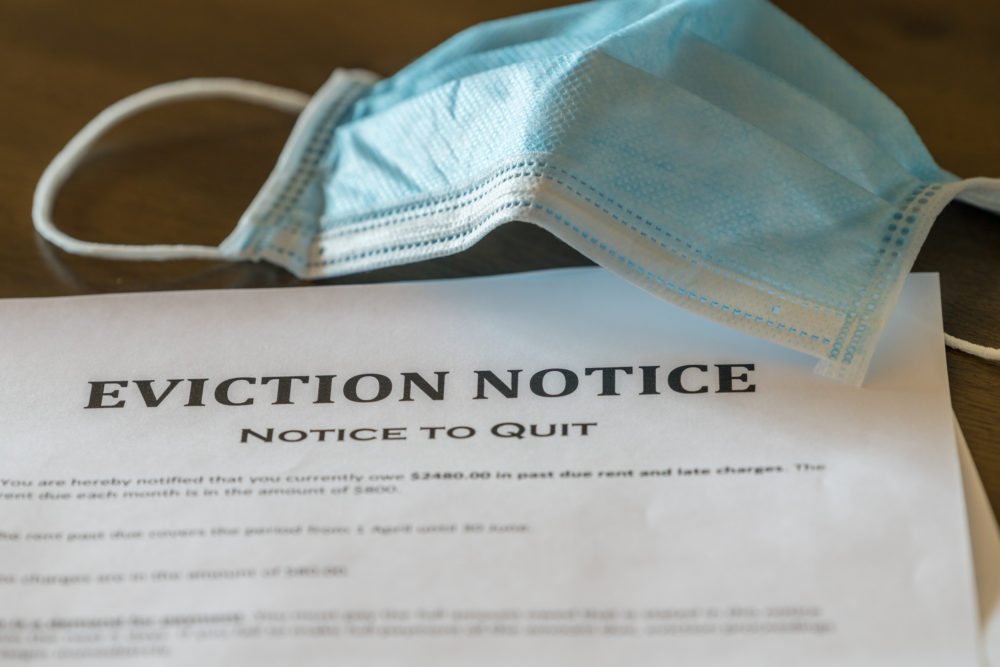Landlord-tenant laws stacked in landlords’ favor, say majority of Georgia renters.
- Relationships between Georgia renters and landlords rated at just 7/10.
- 2 in 3 renters said they’d consider breaking their lease if their rental home flooded.
- Interactive map showing tenants/landlords relationships in America.
After the past year and then some of the pandemic, we’re no strangers to navigating circumstances out of our control; but unexpected sudden disasters like flooding and storms have recently caused major destruction to homes across multiple states, leaving many renters and homeowners concerned about how they will cover damages. Without proper flood insurance, renters could be stuck with paying for these out of their own pocket. And it can be frustrating to rely on a landlord for your basic home comfort and safety, especially if you have no other housing options. Because landlords can be difficult at times, it’s crucial to be aware of your renter’s rights, as well as any other housing policies in your name.
It’s also often hit or miss when it comes to having a good relationship with the person from whom you are renting. And with the current national housing crisis, renters are becoming more desperate to find a comfortable space to live in at an affordable monthly cost but what they wish to save in dollars, they may pay the price of having an inattentive landlord who doesn’t conduct maintenance and repairs on time… Especially during a period where uncontrollable circumstances might be more likely to occur.
ServiceMasterByZaba.com, water damage restoration experts, conducted a survey of 3,407 renters across the country to determine how well they get along with their landlord, asking them to rank this relationship on a scale from 1 to 10 (1 being the worst and 10 being the best). The survey discovered that overall, the average renter in Georgia ranked their relationship with their housing landlord at 7 out of 10.
Interactive map showing tenants/landlords relationships in America
After spending more time at home and realizing the importance of having a proper functioning living space, tenants may find themselves overwhelmed by the thought of their household being inhabitable. In fact, nearly one third (29%) of people said the recent storms and flooding that have hit America have made them more fearful of their property potentially flooding. And, the sad reality is that some home disasters, like flooding, storm damage and natural disasters, are uncontrollable, regardless of how many sandbags or preventative measures you implement. But it can be a frustrating battle to determine who is liable for the damages that occur. The survey also found that 27% of homeowners wrongly thought that their standard home insurance covers flooding damage. However, standard homeowners’ insurances are usually limited to things like burst pipes and internal leakages like ceiling or appliance leaks.
It’s also vital that renters ensure they understand fully what kind of damages are covered by their insurance policy to avoid any hidden costs or extra admin if these kinds of situations do occur. A renter’s insurance policy can supplement the lease, helping to protect the occupants, belongings and living arrangements under terms not covered in the lease between the landlord and renter.
The survey also discovered that a whopping 70% of renters said they’d consider breaking their lease if their rental home flooded. Usually, if the property is dangerously uninhabitable, tenants are likely to be protected from legal consequences if they break their lease for this reason. However, the subjectivity of the term ‘uninhabitable’ can fuel arguments between tenants and stubborn landlords… For example, a power outage for a week or two might not render a rental property being entirely uninhabitable, however, if this condition continues for months, the tenant might be able to state their case. But more than half (57%) of renters in Georgia believe if there was ever a dispute with their landlord, the landlord-tenant laws are stacked against them, which can discourage some from reporting these kinds of issues.
Lastly when it comes to damage liability, more than 2 in 3 (67%) renters and homeowners said if their property flooded and insurance refused to pay, they think it’s fair that their local state government helps cover these damage costs. The Federal Emergency Management Act (FEMA) also offers disaster assistance to eligible renters and homeowners if they apply, which can include financial help for temporary housing while repairs are conducted. Although FEMA doesn’t cover any costs covered by your insurance, it can still be worth applying if your standard policy doesn’t cover basic needs, like repairs to windows or stoves.
‘With our inability to control naturally occurring disasters – which we’re seeing with increasing severity – it’s often impossible to completely safeguard your home from severe storms, including sudden changing weather conditions which can happen in the blink of an eye,’ said Diana Rodriguez-Zaba for ServiceMasterByZaba.com. ‘For this reason, if you’re concerned about specific kinds of weather conditions in your area, it’s worth looking into insurance policies which ensure full coverage for damage caused by things like hurricanes, tropical storms and intense flooding.’

